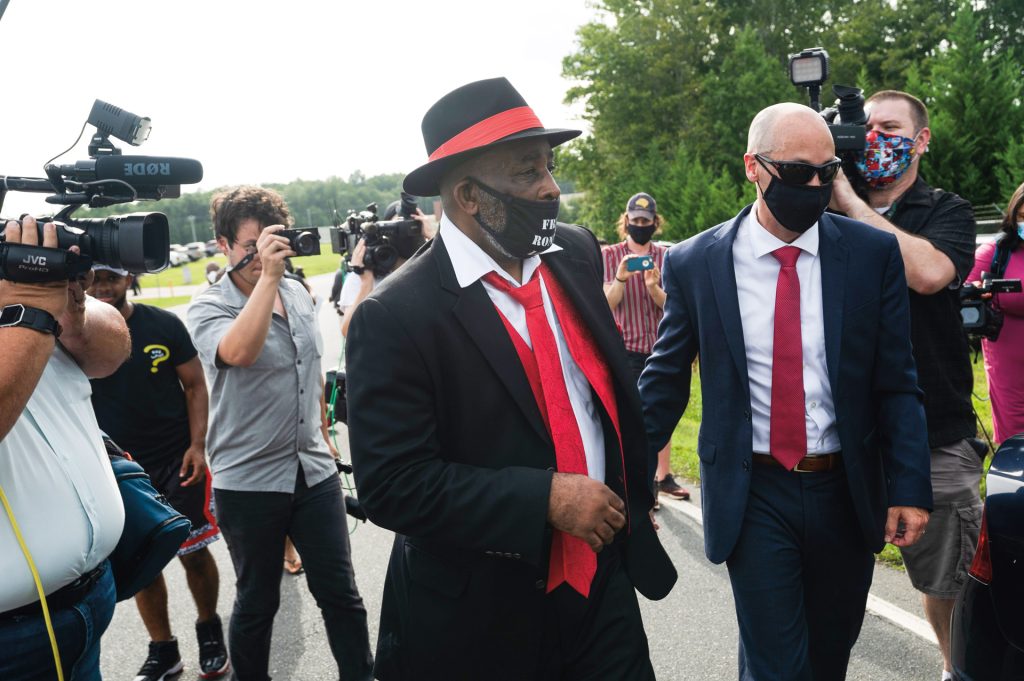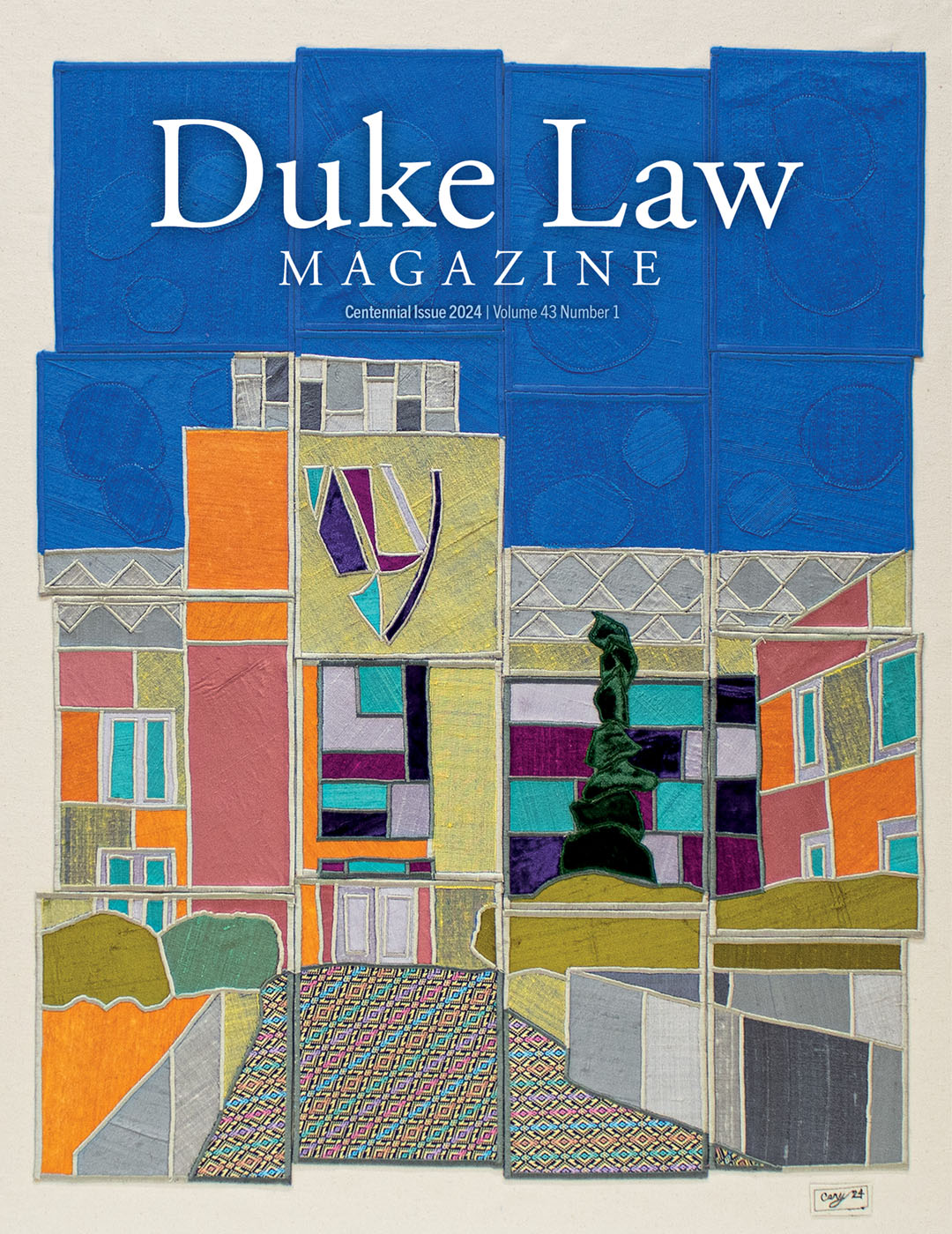
Ronnie Long and Clinical Professor Jamie Lau ’09 following Long’s release from prison on Aug. 27, 2020. (Photo: Denise Nation)
Wrongful Convictions Clinic
Ronnie Long receives $25 million settlement
Ronnie Long, a client of Duke Law School’s Wrongful Convictions Clinic who spent more than 44 years in prison for a crime he did not commit, settled a civil lawsuit against the City of Concord, North Carolina, and the North Carolina State Bureau of Investigation for $25 million.
Long’s total settlement, which includes a $22 million payment from the City of Concord and a previous $3 million settlement with the SBI, is the second largest wrongful conviction settlement ever recorded.
In a Jan. 9 statement, the City accepted responsibility for “significant errors in judgement and willful misconduct by previous [C]ity employees that led to Long’s wrongful conviction and imprisonment.”
“We are deeply remorseful for the past wrongs that caused tremendous harm to Mr. Long, his family, friends, and our community,” the statement read. “We are hopeful this can begin the healing process for Mr. Long, his family, and our community, and that together we can move forward while learning valuable lessons and ensuring nothing like this ever happens again.”
The civil lawsuits were handled by Pfeiffer Rudolf of Charlotte.
“No amount of money will ever compensate Ronnie Long for the 44 years he spent incarcerated and the indifference of numerous elected officials who fought to keep him incarcerated despite overwhelming evidence of his innocence,” said Clinical Professor Jamie Lau ’09, the clinic’s supervising attorney, who served as Long’s lead attorney during his appeal.
But, he said, “I applaud the City for taking responsibility and making it possible for Mr. Long to move on from the nightmare he lived for more than half his life.”
The City of Concord, N.C., admitted “significant errors in judgment and willful misconduct” that resulted in Long being imprisoned for more than 44 years.
Long, who is Black, was convicted by an all-white jury on Oct. 1, 1976, for the rape of a prominent white woman in Concord. The Chief of Police and County Sheriff inexplicably removed nearly all of the Black potential jurors from the jury pool before summonses were issued. No physical evidence tied Long to the rape and burglary, his attorneys said, and the prosecution’s main piece of evidence — the victim’s identification of Long weeks after the attack — was the product of a suggestive identification procedure arranged by the police to target Long, who did not match her original description of the assailant as a “yellow or really light-skinned Black male.”
Numerous pieces of forensic evidence that could have helped exonerate Long, including 43 fingerprints and a suspect hair collected at the crime scene, none of which were from Long, were tested by investigators but not disclosed, and officers with the Concord Police Department gave false testimony about the evidence at trial. In addition, a rape kit collected at a local hospital and provided to the Concord police went missing and has never been found.
The Wrongful Convictions Clinic took Long’s case in 2015. In 2020, the U.S. Court of Appeals for the Fourth Circuit ruled 9-6 that Long’s due process rights were violated at his trial and remanded the case to the district court to decide the question of innocence. That opinion was issued after a rare en banc hearing in May 2020 during which the State argued that the withheld evidence and misleading testimony at Long’s trial did not prejudice the outcome.
Long was released from prison on Aug. 27, 2020. At the time, only two other exonerated defendants in U.S. history had spent longer behind bars. His conviction was subsequently vacated and he later received a pardon of innocence from Gov. Roy Cooper.
During a Feb. 6 appearance with Long on CNN’s Laura Coates Live, Lau highlighted the work yet to be done.
“Ronnie’s case was a racially charged case in the South in 1976 and he was just released in August of 2020,” Lau said.
“To the extent that racism was alive and well in the South following the dismantling of Jim Crow, that legacy lives on with regards to people who are in prison dating back to that time.” — Andrew Park

